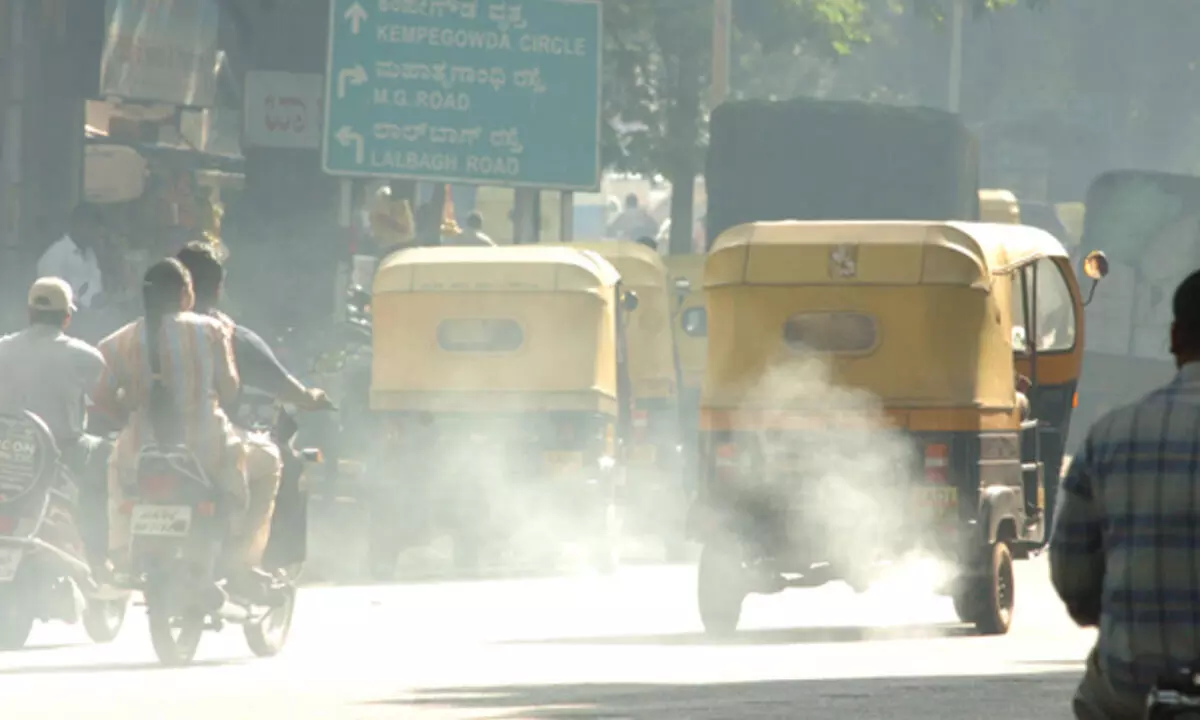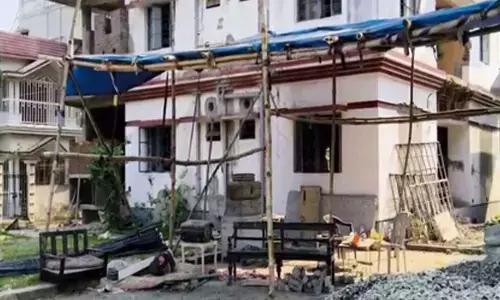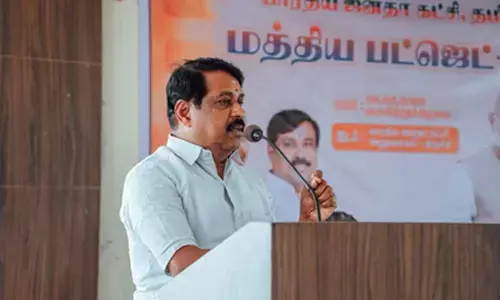CSTEP research identifies ways to reduce Bengaluru's air pollution

CSTEP research identifies ways to reduce Bengaluru’s air pollution
While Bengaluru's deteriorating air quality is reason for concern, interventions targeted at polluting sources can help reduce pollution levels, according to the studies released by the Center for Study of Science, Technology and Policy (CSTEP).
Bengaluru: While Bengaluru's deteriorating air quality is reason for concern, interventions targeted at polluting sources can help reduce pollution levels, according to the studies released by the Center for Study of Science, Technology and Policy (CSTEP). The studies, titled 'Emission Inventory and Pollution Reduction Strategies for Bengaluru' and 'Identification of Polluting Sources for Bengaluru,' identified polluting sources/activities or hotspots, which have been a major concern for policy makers in the air pollution sector.
Dr.Shanth A. Thimmaiah, Chairman of the Karnataka State Pollution Control Board, stated at the workshop that the board will review its action plans using CSTEP's findings. He discussed the importance of micro action plans which assist pollution control boards in taking effective, result-oriented action to improve air quality.
'The event is an opportunity to evaluate our work. CSTEP's reports will be used as a base for studying and making clean air action plans for three other nonattainment cities through a Plan-Do-Check-Act approach', he says. Vijay Mohan Raj, Principal Secretary, Ecology and Environment Department, Government of Karnataka, highlighted the need for air guilt—the guilt that comes from knowing that we are contributing to air pollution (and how)—to be felt by all and drive our actions. To do this, data need to be presented in simple formats that could be understood by even children.
He hoped that the reports would bring about last-mile changes to improve air quality.
Dr Pratima Singh, Research Scientist at CSTEP who led the study, says "Considering Bengaluru's status as a non-attainment city, conducting a scientific assessment through source apportionment and emission inventory was crucial towards preparing efficient strategies. Our studies estimated transportation to be the major contributor (around 40–51%), followed by road dust resuspension (17– 51%). Other polluting sectors include construction dust, domestic fuel, and diesel generators."
By training state government officials to use scientific methods to assess air quality through this event, CSTEP hopes to enhance the quality and effectiveness of policy decisions.









